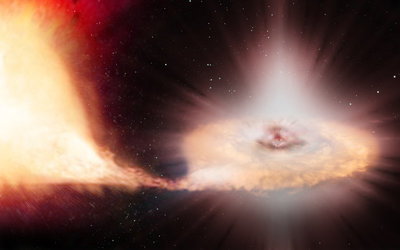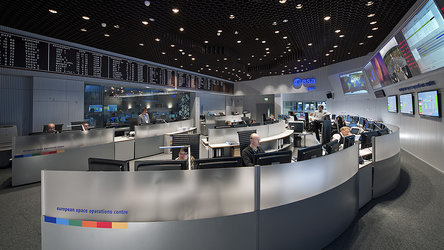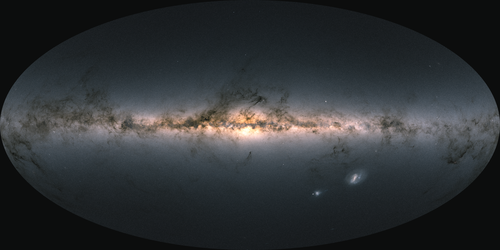Notes for Editors (Gaia discovers its first supernova)
Gaia is an ESA mission to survey one billion stars in our Galaxy and local galactic neighbourhood in order to build the most precise 3D map of the Milky Way and answer questions about its origin and evolution.
Gaia’s scientific operations begun on 25 July 2014 with the special scanning through a narrow region in the sky, while the normal scanning procedure was switched on a month later, on 25 August.
The mission’s primary scientific product will be a catalogue with the position, motion, brightness and colour of the surveyed stars. An intermediate version of the catalogue will be released in 2016. In the meantime, Gaia's observing strategy, with repeated scans of the entire sky, will allow the discovery and measurement of transient events across the sky.
This first such discovery is the Type Ia supernova described in this article, named Gaia14aaa. The name follows the convention used for naming transient astronomical sources, which acknowledges the name of the survey followed by the year of discovery and by a combination of letters to indicate the order of discovery. The supernova’s host galaxy, SDSS J132102.26+453223.8, is about 500 million light-years away.
Converting the telemetry received from Gaia into scientific data products is the responsibility of the Gaia Data Processing and Analysis Consortium (DPAC). Within the Photometric Processing coordination unit of DPAC, the Science Alert Team is responsible for identifying transient sources.
During the first few months of Gaia’s scientific operations, astronomers in the Science Alert Team will be compiling a preliminary catalogue of transients on a daily basis, depending on the data availability.
Follow-up observations from the ground to assess the nature of these sources will be carried out by the collaborating partners from Europe and elsewhere. Schools and amateur astronomers will also be involved in following up these targets.
Scientists from the Gaia mission and other astronomers studying transient events are gathered this week at the 5th Gaia Science Alerts Workshop, hosted at Warsaw University, Poland from 9 to 12 September 2014.











